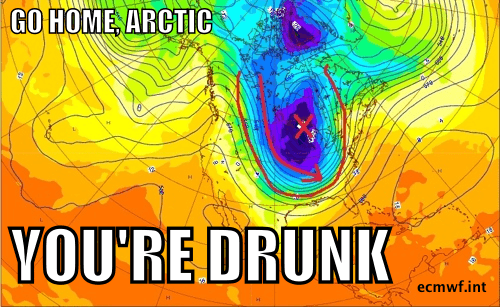The year 2018 was warm, but since previous years had been super warm, it may have seemed a bit cooler. There was indeed a downswing, but only a little one.
However, 2019 is looking like an upswing year. It will not be as warm as the recent El Nino year, but it will be close, and it will follow the predicted upward course of global warming caused by our release of greenhouse gasses and the effect of those gasses on delicate and critically important atmospheric chemistry.
Climate Central has a a State of the Climate report here.
Note that the various predictions for the activity level of the 2019 hurricane season suggest an average year. The most common midpoint of estimates for the number of actual hurricanes is five, with 2 major ones, in the Atlantic. The long term average for those numbers is 6.4 and 2.7. However, the estimate for the total number of named storms is a bit higher than the average of 12.1, suggesting between 10 and 14 or so. We have already had one, before the official start of the season, but the Atlantic has been relatively quiet since then.
This Spring’s unprecedented flooding is of course directly related to climate change, and there isn’t a sane person on the Earth who doesn’t accept that as truth. You will have a harder time finding people accepting a link between tornado activity, which has been very high this year, and global warming, but it is also true that a) there has been a very well entrenched and active non-acceptance of that relationship for years in the meteorological community and b) it seems that having a few bad years in a row, as we have had with hurricanes, is required before enough people put their thinking caps on and think. So, I await a possible shift in position on tornadoes and global warming.




 The relationship between rainfall, groundwater, evaporation and transpiration, vegetation, bodies of water, animal distribution, agriculture, humans, and atmospheric conditions (not to mention oceanic factors and topography) underlie many different realms of academia and policy. Almost nothing I’ve ever done in my anthropological research didn’t include the hydrologic cycle, climate, and related issues. The weather weirding we are currently watching across the globe, including the current heavy rains and tornadoes, are part of this, and the long lived California Drought, the one that ended just recently, is as well.
The relationship between rainfall, groundwater, evaporation and transpiration, vegetation, bodies of water, animal distribution, agriculture, humans, and atmospheric conditions (not to mention oceanic factors and topography) underlie many different realms of academia and policy. Almost nothing I’ve ever done in my anthropological research didn’t include the hydrologic cycle, climate, and related issues. The weather weirding we are currently watching across the globe, including the current heavy rains and tornadoes, are part of this, and the long lived California Drought, the one that ended just recently, is as well.










